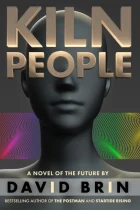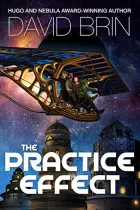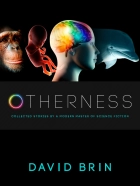The ultimate answer to “government is useless.”
The hypnotic incantation that all-government-is-evil-all-the-time would have bemused and appalled our parents in the Greatest Generation – those who persevered to overcome the Depression and Hitler, then contained Stalinism, went to the moon, developed successful companies and built a mighty middle class, all at high tax rates. The mixed society that they built emphasized a wide stance, pragmatically stirring private enterprise with targeted collective actions, funded by a consensus negotiation process called politics. The resulting civilization has been more successful – by orders of magnitude – than any other. Than any combination of others.
So why do we hear an endlessly-repeated nostrum that this wide-stance, mixed approach is all wrong? That mantra is pushed so relentlessly by right-wing media — as well as some on the left — that it came as no surprise when a recent Pew Poll showed distrust of government among Americans at an all-time high. This general loathing collapses when citizens are asked which specific parts of government they’d shut down. It turns out that most of them like most specific things that their taxes pay for.
In a sense, this isn’t new. For a century and a half, followers of Karl Marx demanded that we amputate society’s right arm of market-competitive enterprise and rely only on socialist guided-allocation for economic control. Meanwhile, Ayn Rand’s ilk led a throng of those proclaiming we must lop off our left arm – forswearing any coordinated projects that look beyond the typical five year (nowadays more like one-year) commercial investment horizon.
Any sensible person would respond: “Hey I need both arms, so bugger off! Now let’s keep examining what each arm is good at, revising our knowledge of what each shouldn’t do.”
Does that sound too practical and moderate for this era? Our parents thought they had dealt with all this, proving decisively that calm negotiation, compromise and pragmatic mixed-solutions work best. They would be stunned to see that fanatical would-be amputators are back in force, ranting nonsense.
Take for example Matt Ridley’s recent article in the Wall Street Journal, deriding government supported science as useless and counter-productive — a stance dear to WSJ’s owner, Rupert Murdoch. Ridley’s core assertion? That the forward march of technological innovation and discovery is fore-ordained, as if by natural law. That competitive markets will allocate funds to develop new products with vastly greater efficiency than government bureaucrats picking winners and losers. And that research without a clear, near-future economic return is both futile and unnecessary.
== The driver of innovation is… ==
Former Microsoft CTO and IP Impressario Nathan Myhrvold has written a powerful rebuttal – Where does technological innovation come from? – to Ridley’s murdochian call for amputation. Says Myhrvold: “It’s natural for writers to want to come out with a contrarian piece that reverses all conventional wisdom, but it tends to work out better if the evidence one quotes is factually true. Alas Ridley’s evidence isn’t – his examples are all, so far as I can tell, either completely wrong, or at best selectively quoted. I also think his logic is wrong, and to be honest I don’t think much of the ideology that drives his argument either.” Nathan’s rebuttal can be found here, along with links to the original, and Ridley’s response.
Myhrvold does a good job tearing holes in Ridley’s assertion that patents and other IP do nothing to stimulate innovation and economic development. Only he does not go far enough or present a wide perspective. He fails, for example, to put all of this into the context of 6000 years of human history. So let me try.
During most of that time, innovation was actively suppressed by kings and lords and priests, fearing anything (except new armaments) that might upset the stable hierarchy. Moreover, innovators felt a strong incentive to keep any discoveries secret, lest competitors steal their advantage. As a result, many brilliant inventions were lost when the discoverers died. Examples abound, from Heron’s steam engines and Baghdad Batteries to Antekythera-style mechanical calculators and Damascus steel — from clear glass lenses to obstetric forceps – all lost for millennia before being rediscovered after much unnecessary pain. Staring across that vast wasteland of sixty feudal and futile centuries — comparing them to our dazzling levels of inventive success, especially since World War II — slams a steep burden of proof upon someone like Ridley, who asserts we are the ones doing something wrong.
In fact, though well-nurtured and tended markets are remarkably fecund, they are anything but “natural.” Show us historical examples! Kings, lords, priests and other cheaters always — always — warped and crushed market competition, far more than our modern, enlightenment states do. Indeed, owner-oligarchy was the villain in Adam Smith’s call for a more “liberal” form of capitalism. Compared to those competition-ruining feudalists, Smith had little ire for socialists. In fact, his liberal approach calls upon the state to counter-balance oligarchy, in order to keep capitalism flat-open-fair.
Our maligned democratic states — while imperfect, always in need of criticism and fine tuning — engendered revolutions in mass education, infrastructure and reliable law that unleashed creative millions, maximizing the raw number of eager competitors — exactly the great ingredient that Friedrich Hayek recommended and that Adam Smith prescribed for a healthy, competitive market economy.
To be clear, those who rail against 200,000 civil servants – closely watched and accountable – “picking winners and losers” have a reasonable complaint… but not when their prescription is handing over the same power to 5000 secretive and unaccountable members of a closed and incestuous oligarchic caste. Smith and Hayek both had harsh words for that ancient and utterly bankrupt approach.
(Question: who actually de-regulates, when appropriate? When certain government interventionswere ‘captured” by anti-competitive oligarchs, it was Democrats who erased the Interstate Commerce Commission (ICC), restoring price competition to railroads (the bête noir of Ayn Rand) and the Civil Aeronautics Board (CAB: price-fixing for airlines). AT&T was broken up, and the Internet was unleashed by Al Gore’s legislation. Add in Gore’s Paperwork limitation act and Bill Clinton’s deregulation of GPS and one has to ask a simple question. Does anti-regulatory polemic matter more… or effective action?)
Yes, amid those horrific 6000 years of dismally lobotomizing feudal rule, history does offer us a few, rare examples when innovation flourished, leading to spectacular returns. In most such cases, state investment and focused R&D played a major role. One can cite the great Chinese fleets of Admiral Cheng He or the impressive maritime research centers established by Prince Henry the Navigator, that made little Portugal a giant on the world stage. Likewise, tiny Holland became a global leader, stimulated by its free-city universities. England advanced tech rapidly with endowed scientific chairs, state subsidies and prizes.
Those rare examples stand out from the general, dreary morass of feudal history. But none of them compare to the exponential growth unleashed by late-20th Century America’s synergy of government, enterprise and unleashed individual competitiveness, the very thing that all those kings and priests and lords used to crush, on sight. One result was the first society ever in the shape of a diamond, instead of the classic, feudal pyramid of privilege – a diamond whose vast and healthy and well-educated middle class has proved to be the generator of nearly all of our great accomplishments.
It is this historical perspective that seems so lacking in today’s political and philosophical debates — shallow as they are. It reveals that the agenda of folks like Matt Ridley – and Rupert Murdoch – is not to release us from thralldom to shortsighted, oppressive civil servants and snooty scientist-boffins. It is to discredit all of the modern expert castes that we have established, who serve to counterbalance (as Adam Smith prescribed) the feudal pyramids under which our ancestors sweltered in constraint. Their aim – the evident goal of all “supply side” upward wealth transfers – is a return to those ancient, horrid ways.
== Before our very eyes ==
I believe one of our problems is that the Rooseveltean reforms – which historians credit with saving western capitalism by vesting the working class with a large stake, something Marx never expected – were too successful, in a way. So successful that the very idea of class war seems not even to occur to American boomers. This, despite the fact that class conflict was rampant across almost every other nation and time. But as boomers age-out is that grand time of naïve expectation over?
Forbes recently announced that just 62 ultra-rich individuals have as much wealth as the bottom half of humanity. Five years ago, it took 388 rich guys to achieve that status. Which raises the question, where the heck does this rising, proto-feudal oligarchy think it will all lead?
To a restoration of humanity’s normal, aristocratic pyramid of power (with them staying on top)? Or to radicalization, as a billion members of the hard-pressed but highly skilled and tech-empowered middle class rediscover class struggle? To Revenge of the nerds?
The last time this happened, in the 1930s, lordly owner castes in Germany, Japan, Britain and the U.S. used mass media they owned to stir populist rightwing movements that might help suppress activity on the left. Not one of these efforts succeeded. In Germany and Japan, the monsters they created rose up and took over, leading to immense pain for all and eventual loss of much of that oligarchic wealth.
In Britain and the U.S., 1930s reactionary fomenters dragged us very close to the same path… till moderate reformers did what Marx deemed impossible – adjusted the wealth imbalance and reduced cheating advantages so that a rational and flat-open-fair capitalism would be moderated by rules and investments to stimulate a burgeoning middle class, without even slightly damaging the Smithian incentives to get rich through delivery of innovative goods and services. That brilliant moderation led to the middle class booms of the 50s and 60s and – as I cannot repeat too often – it led to big majorities in our parents’ Greatest Generation adoring one living human above all others: Franklin Delano Roosevelt. (The next living human Americans almost universally adored was named Jonas Salk.)
There are some billionaires who aren’t shortsighted fools, ignorant of the lessons of history. Bill Gates, Warren Buffet and many tech moguls want wealth disparities brought down through reasonable, negotiated Rooseveltean-style reform that will still leave them standing as very, very wealthy men.
The smart ones know where current trends will otherwise lead. To revolution and confiscation. Picture the probabilities, when the world’s poorest realize they could double their net wealth, just by transferring title from 50 men. In that case, amid a standoff between fifty oligarchs and three billion poor, it is the skilled middle and upper-middle classes who’ll be the ones deciding civilization’s course. And who do you think those billion tech-savvy professionals – so derided and maligned by murdochian propaganda — will side with, when push comes to shove?
== Back to innovation ==
Oh, for an easy-quick and devastating answer to the “hate-all-government” hypnosis! How I’d love to see a second “National Debt Clock” showing where the U.S. deficit would be now, if we (the citizens) had charged just a 5% royalty on the fruits of U.S. federal research. We’d be in the black! How effective such a “clock” would be. We deserve such a tasty piece of counter propaganda.
Then there is the ‘government research’ that has had spactacular effects that were not obviously fungible. Like solving horrors of smog (as a kid I felt it hurt to breathe!) and acid rain, poisoned/burning rivers, brain-killing leaded gas… and the hugely expensive project of deterring a third world war, allowing the world – and our own entrepreneurs – to endeavor without being crushed under either tyrant boots or mushroom clouds.
See: Eight causes of the fiscal deficit cliff.
Closer to the point, consider this core question: how have we Americans been able to afford the endless trade deficits that propel world development? And make no mistake; two-thirds of the planet developed in one way: by selling Americans (under hugely indulgent US trade policies) trillions of dollars worth of crap we never needed. How did we afford this flood of world-stimulating red ink for 70 years?
Simple. Science and technology. Each decade since the 1940s saw new, U.S.-led advances that engendered enough wealth to let us pay for all the stuff pouring out of Asian factories, giving poor workers jobs and hope. Our trick was to keep the wonders coming — jet planes, rockets, satellites, electronics & transistors & lasers, telecom, pharmaceuticals… and the Internet.
Crucially, the world needs America to keep buying, so that factories can hum and workers send their kids to school, so those kids can then demand labor and environmental laws and all that. The job of George Marshall’s brilliant trade-policy plan is only half finished. Crucially, the world cannot afford for the U.S. consumer to become too poor to buy crap.
Which means we must protect the goose that lays golden eggs – our brilliant inventiveness. Our ability to keep benefiting from enlightenment methods that stimulate creativity. And that will not happen if the fruits of creativity are immediately stolen. There is a bargain implicit in today’s rising world. Let America benefit from innovation, and we’ll buy whatever you produce.
Foreign leaders who ignore that bargain, seeking to eat the goose, as well as its eggs, only prove their own short-sighted foolishness… like our home-grown fools who rail against all government investment and research.
It is time to have another look at the most successful social compact ever created – the Rooseveltean deal made by the Greatest Generation, which we then amended and improved by reducing race and gender injustice and discovering the importance of planetary care. Throw in a vibrantly confident and tech-savvy wave of youth, and that is how we all move forward. Away from dismal feudalism. Toward (maybe) something like Star Trek.
===============
===============
A version of this article ran as a special report in the January 2016 newsletter of Mark Anderson’s Strategic News Service. The SNS Future In Review (FiRe) conference will be held November 7-10 2023 at the Terranea Hotel.





 (The more famous fire goddess — Pele-honua-mea (“Pele of the sacred land”) — lives on the more flamboyant (especially right now), active volcano Kilauea. Although the two goddesses are often conflated as the same, they were said to have been bitter rivals.)
(The more famous fire goddess — Pele-honua-mea (“Pele of the sacred land”) — lives on the more flamboyant (especially right now), active volcano Kilauea. Although the two goddesses are often conflated as the same, they were said to have been bitter rivals.)
 But it’s more than that. A strong correlation shifts the Burden of Proof. When we see a strong correlation, and the matter at-hand is something with major health or safety or security implications, then we are behooved to at least begin taking preliminary precautions, in case the correlation proves to be causative. Sometimes the correlation is later demonstrated not to be causal and a little money has been wasted. But this often proves worthwhile, given long lead times in technology.
But it’s more than that. A strong correlation shifts the Burden of Proof. When we see a strong correlation, and the matter at-hand is something with major health or safety or security implications, then we are behooved to at least begin taking preliminary precautions, in case the correlation proves to be causative. Sometimes the correlation is later demonstrated not to be causal and a little money has been wasted. But this often proves worthwhile, given long lead times in technology. Those who use “Correlation is not the same as causation” as a magic incantation to dismiss all fact-using professions are fools holding a lit match in one hand and an open gas can in the other, screaming “one has nothing to do with the other!”
Those who use “Correlation is not the same as causation” as a magic incantation to dismiss all fact-using professions are fools holding a lit match in one hand and an open gas can in the other, screaming “one has nothing to do with the other!”














